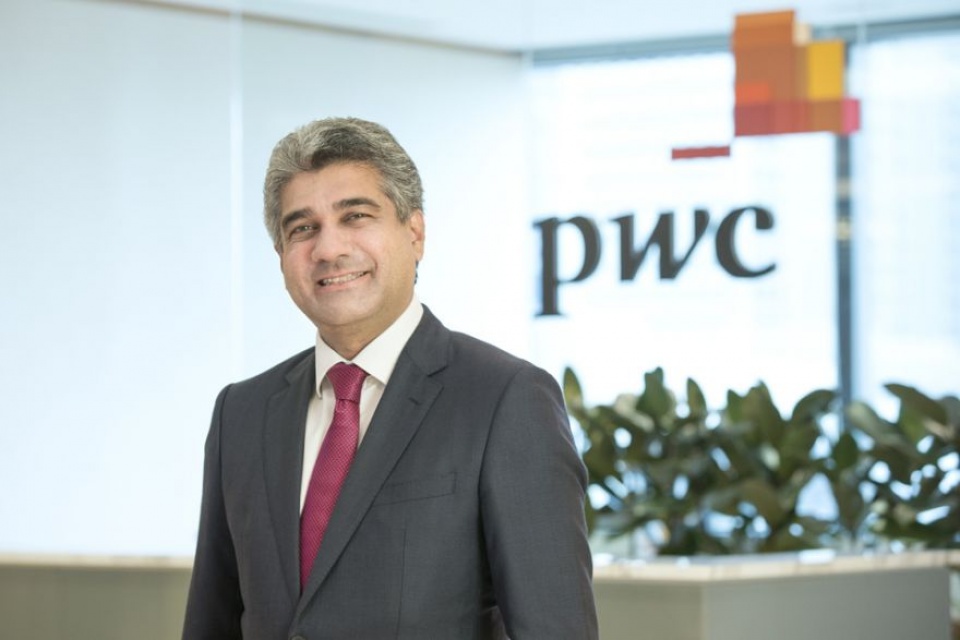
Transform or get left behind
Latest
| TIN LIÊN QUAN | |
| ASEAN students gather to build prosperous bloc | |
| Vietnam attends ASEAN-EU dialogue on sustainable development | |
Sundara Raj, chief executive officer, PwC's South East Asian Consulting Services, outlines the way forward.
 |
| Mr. Sundara Raj. (Photo: The Business Times) |
Ripe for transformation
Technological disruptions, changing demographics of consumers and growing affluence in the ASEAN region are amongst the key factors driving the need for transformation. As a growing business in ASEAN, you cannot rest on your laurels and say, “Let’s wait for a while.” Because information flows so quickly via multiple channels, consumers in the region now don’t have to wait for new trends from other markets to physically arrive on their shores before reacting.
Another driver for business transformation in ASEAN is premised on the fact that the ‘experiences’ of consumers are not always dictated by the specific industry that they interact with – they are often even agnostic to industry. So if as a consumer, you have a good experience dealing with a telco’s call centre, you expect a similar favourable experience with a bank’s customer service centre. The ‘experience’ also becomes universal, with no boundaries across geography. This adds another impetus for urgent change in the way businesses interact with their customers and in turn drives the need to transform ways of working within these organisations.
The urgency for ASEAN businesses to transform is further driven by factors such as rising urbanisation and the increasing trend toward smart cities, growing expectations for critical services like accessible healthcare and education, and the ubiquitous adoption of smart connected devices.
However, the most influential driver for business transformation today is digital disruption, which provides a dynamic environment where consumer interaction across platforms, services and products becomes seamless and instantaneous. The changing face of e-commerce, the advent of intelligent automation, and analytics as well as major strides in payments via blockchain technology are also key factors influencing companies to transform to be relevant to a fast-changing business environment and consumer base.
Embracing disruption to stay relevant
The dynamic ASEAN landscape provides our clients with various opportunities to differentiate themselves. While PwC’s clients are at different stages of maturity across the region, they are all looking for ways to drive faster growth, greater productivity and stay relevant to their changing consumer base.
For example, progressive financial institutions across ASEAN have similar end goals today – they want to have a strong digital presence with the common objective of capturing new segments of customers and revenue streams.
However, the means to achieving these desired goals may be totally different. For example, these institutions may need to take very different routes towards achieving a similar outcome, depending on the maturity of their infrastructure, people, and processes.
PwC uses a ‘BXT’ methodology to assess and drive digital transformation across three critical and interrelated dimensions: B – business strategy; X – user experience; and T – emerging technology. At the heart of the BXT methodology is the fact that effective digital transformation does not happen in silos. Through these three lenses, PwC helps our clients to view their digital transformation challenges holistically.
The BXT philosophy is also scalable for growing businesses and small- and medium-sized enterprises (SMEs). For example, an SME can leverage its customer-centric business strategy to create amazing user experiences for its customers with the right emerging technology at lower cost today, thus hugely differentiating itself from the rest of the pack.
 |
| Illustrative image. (Photo: Vinno.vn) |
Workforce fit for the future
Given the current landscape, where adoption of new technologies and automation of operations are increasingly becoming the new norm, there is a critical need to also transform the workforce. The findings of PwC’s 2017 APEC CEO Survey show that business leaders clearly recognise this need.
Many of the business leaders surveyed feel that they must take the lead on worker training and upskilling, stating that greater investment in continuous learning above all else will help accelerate digital workforce readiness. Continuous learning covers various aspects, from in-house training and apprenticeships to expanding policies that provide benefits or incentives for people to upgrade their skills.
Companies in ASEAN will need to adapt to change and identify the fundamental skills that will sustain them into the future. Some jobs of the future may not yet exist today and conversely, many jobs of today may not exist in their current form in the near future. For example, according to PwC’s 20th Global CEO Survey, most of the skills that will continue to be relevant are the ones that can’t be fully performed by machines; they involve strategic thinking, adaptability, and certain types of problem solving, leadership, creativity, innovation, and emotional intelligence. However, one must admit that the daily advancements in artificial intelligence will continue to blur the lines between what is machine and what is human.
Additionally, the age of advanced predictive analytics is here today and businesses also need to look at ways to use data innovatively to better understand customer preferences and become proactive to changes in consumer trends. ASEAN companies should therefore accelerate the process of enabling their workforce to harness the benefits of data for greater business productivity and differentiation.
A clear purpose to drive transformation
So the dilemma is always where to begin? At the outset, businesses should ask the following salient questions prior to any transformation: how does it view and conduct itself in the market and what is its purpose amidst an increasingly complex and disruptive business landscape. The answers to these questions will determine the desired end states and pave the way for a clearer transformation roadmap that will increase the relevance and sustainability of the business into the near future. With strong and committed leadership at its helm to drive transformation, we feel that businesses of all sizes and scale in ASEAN are definitely poised for growth amid disruption.
 | PM meets corporate executives on sidelines of VBS Prime Minister Nguyen Xuan Phuc hosted separate receptions in the central city of Da Nang on November 7 for corporate executives from the US, China ... |

















